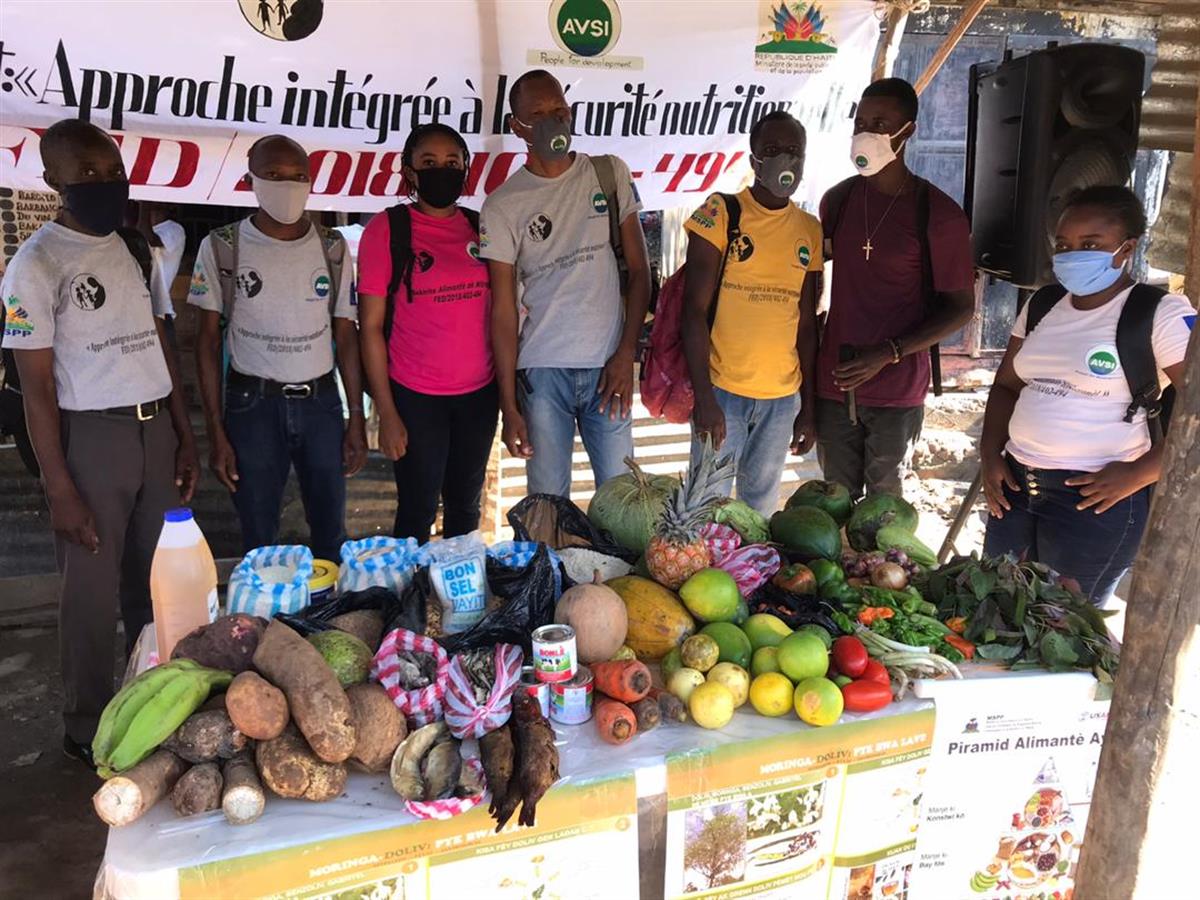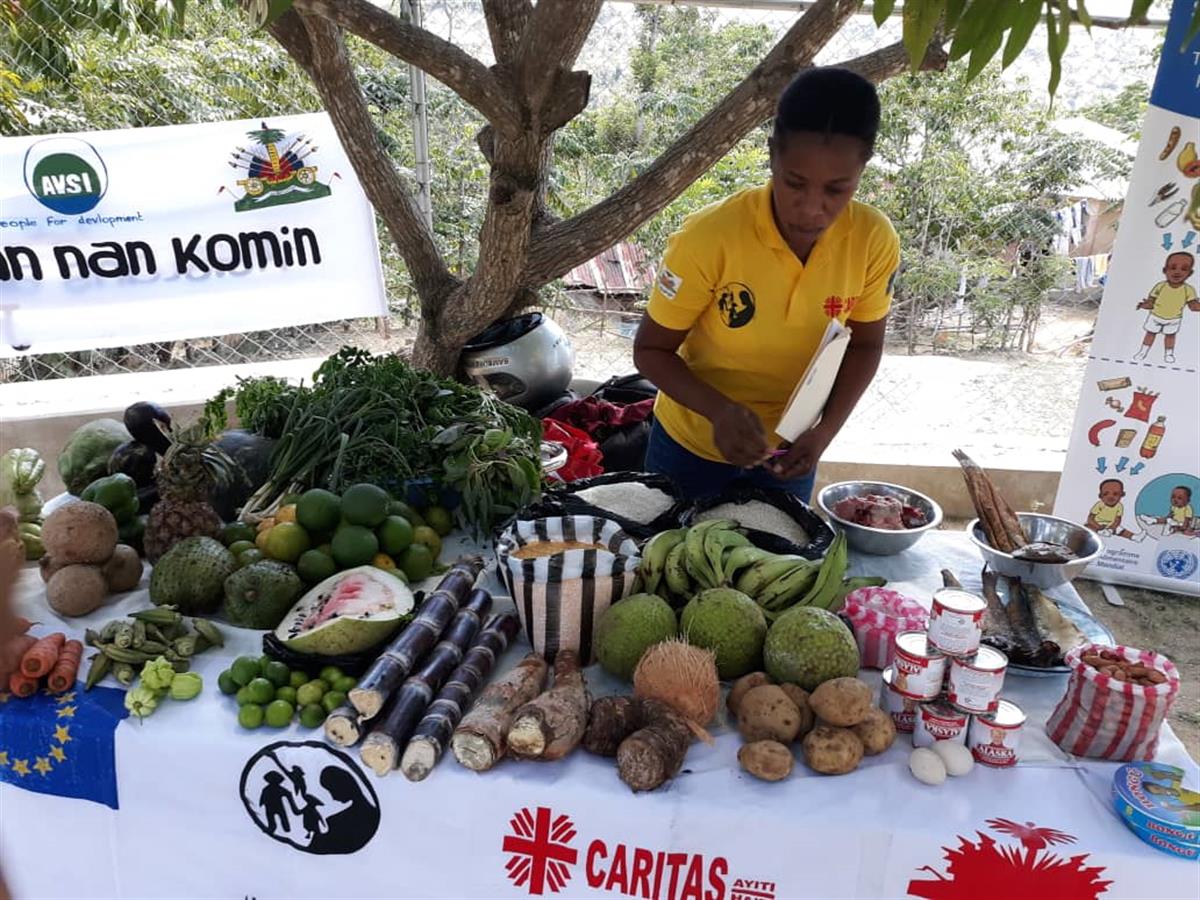On the occasion of the World Food Day (October 16th), AVSI - in partnership with the Haitian Ministry of Health and Population - organized in the municipalities of Port-de-Paix and Jean Rabel (in the North-West) and Gros Morne, Anse Rouge and Terre Neuve (in the Artibonite), some activities to celebrate the day, raising awareness among the population and local authorities on nutritional issues.
AVSI organized nutritional education sessions, practical demonstrations on how to prepare nutritious meals and recreational activities, as well as an exhibition of local food products.
The activities have been implemented in the framework of the projects "Approche intégrée à la Sécurité Nutritionnelle" ("Integrated approach to the nutritional safety") and "Assistance alimentaire d'urgence (transferts monétaires) avec activités sensibles à la nutrition" ("Emergency food assistance - cash transfer - with activities in support of nutrition"), implemented by AVSI and financed by the 11th Development Fund - Multisectoral Program for Food Safety and Nutrition of the European Union and by the World Food Programme (WFP).


Food insecurity is one of the biggest problems in the country, but the situation has worsened in the last year: according to the IPC (Integrated Food Security Phase Classification) food security indicators , 42% of the population of Haiti needs urgent help and it is estimated that the figure will grow in the coming months.
The causes of the worsening are manifold: the scarce rainfall in the spring, the COVID-19 emergency, the increase in inflation with the consequent downsizing of household purchasing power. In addition, the passage of tropical storm Laura at the end of August amplified the losses already recorded in some areas, particularly in the Southeast.
The Integrated Food Security Phase Classification (IPC) detection system is a multi-partner initiative to improve food security, country nutritional analysis and initiatives to be taken. Using the IPC classification and analytical approach, in fact, governments, United Nations agencies, NGOs and civil society work together to determine the severity and extent a country's acute and chronic food insecurity, to design population support interventions.